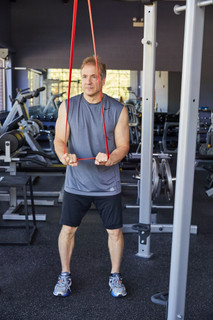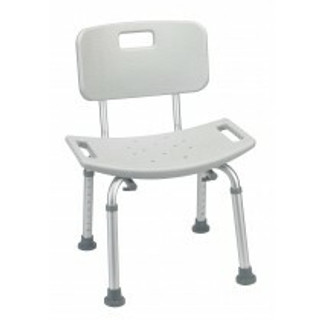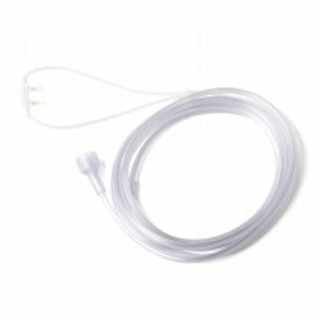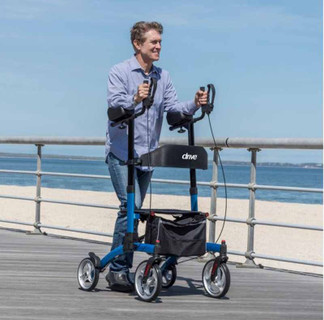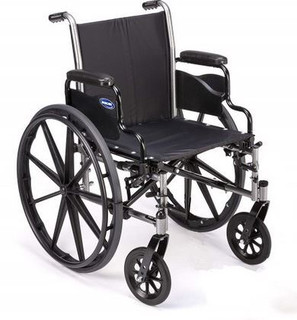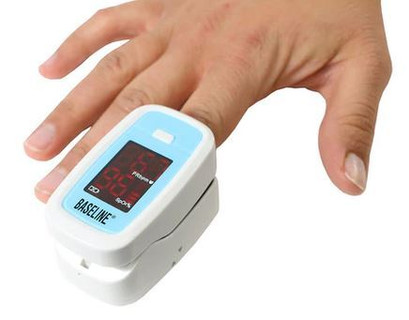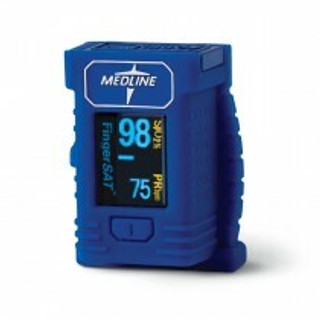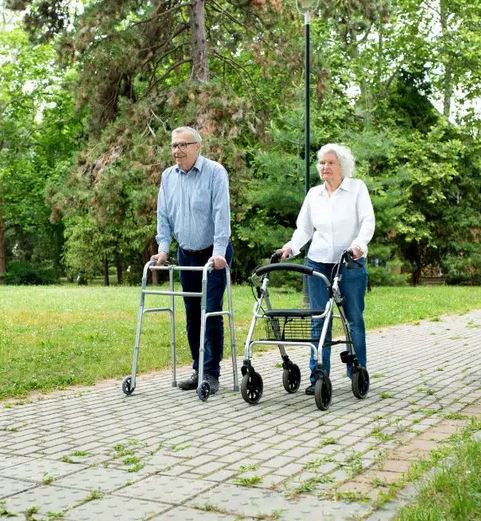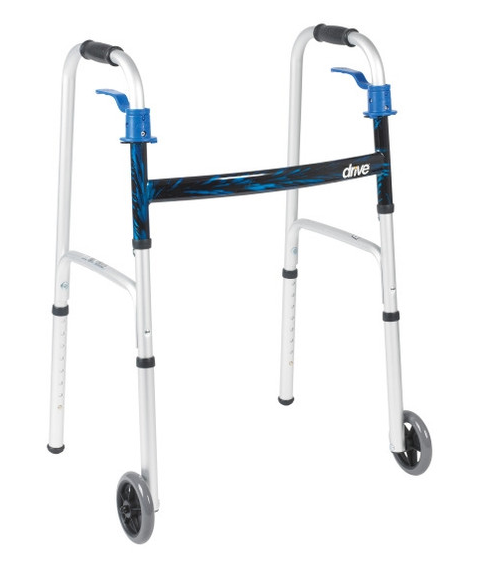The Essential Guide For Purchasing a Walker
Choosing the right walker can significantly improve mobility, independence, and safety for individuals with limited mobility. Walkers come in different designs, each catering to specific needs, abilities, and environments. Here's a detailed guide to help you choose the most appropriate walker:
1. Assess Your Needs and Abilities
Before selecting a walker, you need to evaluate your mobility requirements, strength, and the nature of your physical condition.
- Balance Issues: Do you need support mainly for balance or full weight-bearing assistance?
- Endurance: Can you walk short distances but tire easily, or do you need the walker at all times?
- Terrain: Will you use the walker indoors, outdoors, or both? Will you need to traverse uneven surfaces or just flat floors?
- Height and Weight: Walkers come in different sizes. Ensure the walker can support your weight and is adjustable to your height for optimal posture.
2. Types of Walkers
There are four main types of walkers, each serving a different purpose:
Standard Walkers (Non-Wheeled Walkers)
- Best for: Those who need maximum stability and weight-bearing support.
- Design: Four non-wheeled legs that provide a stable base of support.
- Pros:
- Extremely stable since the user lifts it to move forward.
- Suitable for indoor use on flat surfaces.
- Cons:
- Requires significant upper body strength and balance to lift and move.
- Not ideal for people with limited arm strength or coordination.
Two-Wheeled Walkers (Front-Wheel Walkers)
- Best for: Individuals who need some support but can lift the walker slightly as they move.
- Design: Two front wheels and two back legs with rubber tips for stability.
- Pros:
- Provides more fluid movement than a standard walker.
- More stable than a rollator for users who need frequent rest breaks.
- Cons:
- Less maneuverable than a four-wheeled walker.
- Still requires some upper body strength to push.
Four-Wheeled Walkers (Rollators)
- Best for: Those who need moderate support but want a smoother, faster movement.
- Design: Four wheels, hand brakes, and often include a built-in seat for rest.
- Pros:
- Ideal for outdoor use on rough terrain or long distances.
- The seat allows users to sit and rest whenever necessary.
- Easier to maneuver and push.
- Cons:
- Less stable than non-wheeled or two-wheeled walkers.
- Requires good hand control to use the brakes effectively.
Hemi Walkers (Side Walkers)
- Best for: People with one-sided weakness (e.g., stroke survivors) who need more support than a cane but not a full walker.
- Design: Larger than a cane, but smaller and lighter than a standard walker.
- Pros:
- Can be used with one hand, providing more stability than a cane.
- Lightweight and easy to store.
- Cons:
- Limited to individuals with one-sided weakness.
- Less stable than a traditional walker.
3. Key Features to Consider
Height Adjustability
- Ensure the walker is adjustable to your height. The handles should be level with your wrists when your arms hang naturally at your sides.
- Incorrect height can lead to posture issues and discomfort.
Weight Capacity
- Most walkers have a weight limit. Ensure the walker can safely support your weight.
- Bariatric models are available for individuals with higher weight needs.
Wheels Size and Type
- Small wheels: Easier to maneuver indoors on smooth surfaces.
- Larger wheels: Better suited for outdoor use on uneven terrain.
- Swivel wheels: Some models have front swivel wheels for easier turning.
Hand Brakes (for Wheeled Walkers)
- If you choose a rollator, make sure it has easy-to-use brakes.
- Test the brakes to ensure you have the strength and dexterity to operate them.
Foldability and Portability
- Choose a walker that is easy to fold for storage or transportation.
- Consider whether you'll need to fit the walker into a car or small spaces.
Seat and Storage (Rollators)
- If you opt for a rollator, check if the seat height and size are comfortable for you.
- Some rollators have baskets or pouches, which can be convenient for carrying personal items.
4. Considerations for Specific Conditions
Arthritis
- Look for a walker with padded grips and easy-to-use brakes (if wheeled).
- A lightweight walker will make it easier to maneuver if you have joint pain.
Post-Stroke
- A hemi walker or a quad cane may be more suitable for those with unilateral weakness.
- You may need a walker with a wider base for greater stability.
Balance Disorders
- A standard or front-wheeled walker might be preferable to provide maximum stability.
Weak Upper Body
- A rollator may be easier to push than a standard walker, but you'll need to be able to control the brakes.
- If your strength is limited, avoid walkers that require you to lift them.
5. Cost and Insurance Coverage
- Walkers can range from basic, affordable models to more expensive, feature-rich designs.
- Medicare and most insurance companies cover durable medical equipment, including walkers, if they are prescribed by a healthcare provider. Confirm coverage and reimbursement options with your provider.
6. Consult a Professional
- It's best to get guidance from a physical therapist, occupational therapist, or physician to ensure you're selecting the right walker for your specific condition.
- Some medical equipment stores allow you to try out different models in-store to see what feels comfortable.
7. Testing and Fitting
- When trying a walker, make sure it feels comfortable and supportive.
- Walk with it for a few minutes, turning and adjusting the height if necessary.
- If it has wheels, test the brakes and ensure they lock securely.
Conclusion
Choosing the right walker is an important decision for enhancing mobility and safety. Whether you need a walker for balance, weight-bearing, or simply as a precaution, selecting the right type based on your specific needs, environment, and abilities is essential. Always consult with a healthcare professional for recommendations tailored to your physical condition.
Deciding which walker to purchase can be a confusing experience. SafeWell Medical Supply has walkers and rollators to suit your every need. Every one ships fast and for free! Check out their full range of mobility devices today!.





